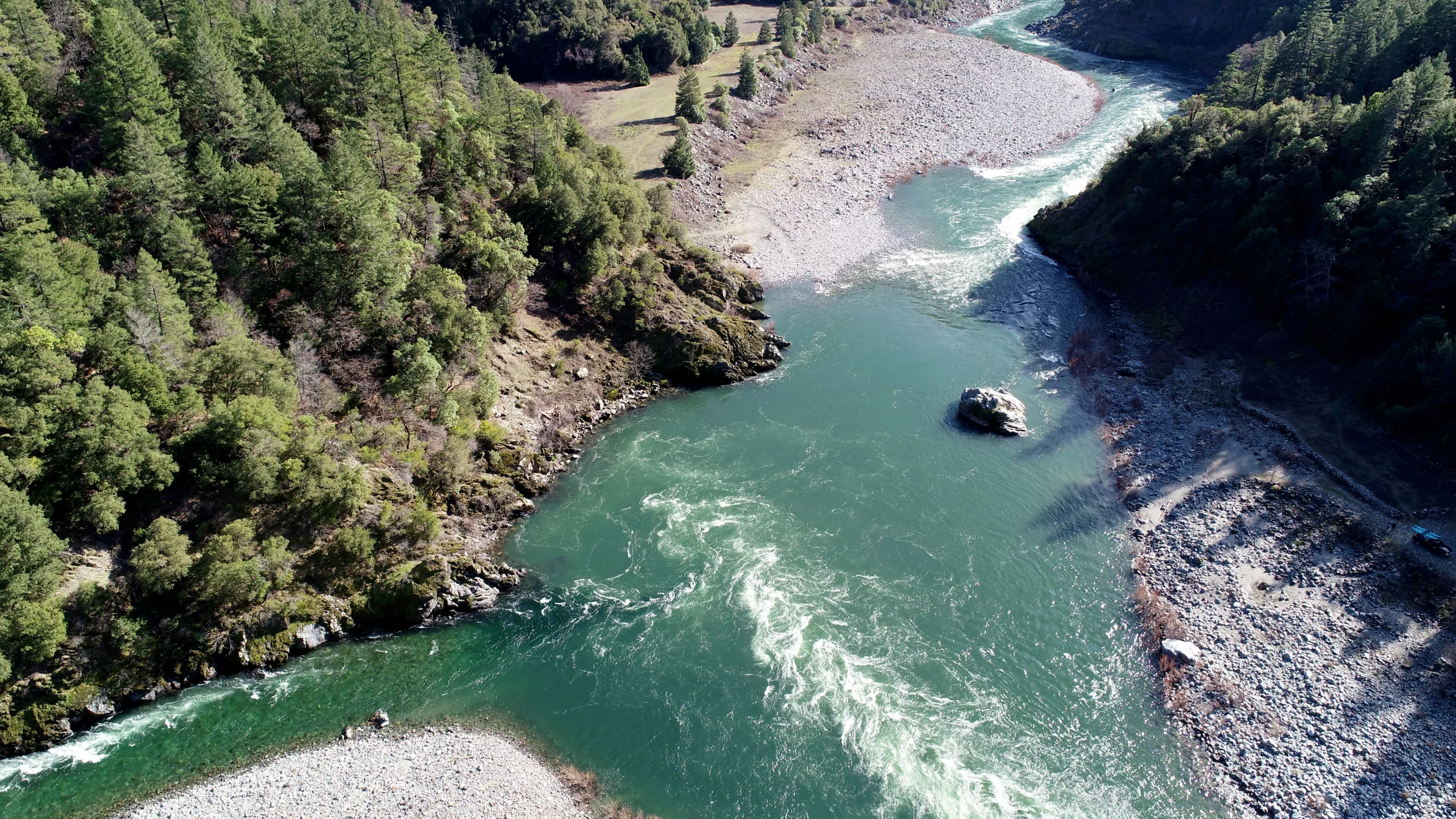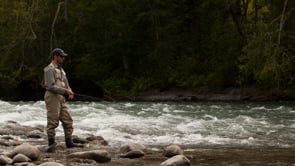American Whitewater Supports Return of Klamath River Land to the Karuk Tribe

For decades, the Karuk Tribe of California has been seeking the return of spiritually significant lands along the middle Klamath River and lower Salmon River in the far northwestern corner of the state. These lands were forcibly and violently taken from the Karuk people in the early days of the California Gold Rush in the 1850s and represent the center of their universe.
American Whitewater is actively supporting the return of just over 1,000 acres of these lands along the Klamath and Salmon rivers to the Tribe so they can freely conduct their World Renewal Ceremonies in the necessary privacy and sanctity. California senators Alex Padilla and Diane Feinstein recently introduced the Katimiîn and Ameekyáaraam Sacred Lands Act (S. 4439) to transfer these lands from the U.S. Forest Service to the Department of Interior to be held in trust for the Karuk Tribe, similar to how reservation lands are held. Two whitewater runs, the Klamath’s Ikes Run and the Lower Salmon Run, flow through these lands.
Last week, we provided written testimony in support of the legislation to the Senate Committee on Indian Affairs, the first step of this bill’s movement through Congress. California District 2 Congressman Jared Huffman has already introduced a companion bill to the House of Representatives (H.R. 6032).
The land includes two sacred sites, Katimiîn on the lowermost reach of the Salmon River (Karuk: Masúhsav), and Ameekyáaraam, located on the Klamath River (Karuk: Ishkêesh) near the confluence of the two rivers. The World Renewal Ceremonies take place at these sites and are central to the Karuk worldview of fixing the world, or Pikyavish. The Karuk people have lived, fished, prayed and fixed the world on these lands and rivers since time began, and they continue these traditions today. The Tribe is the second largest in California and has been leading the effort to remove four Klamath River dams and restore the health of the river’s imperiled fishery.
Both rivers are part of the state and federal Wild and Scenic Rivers Systems and will remain fully protected as such after the land transfer. The U.S Forest Service, as the continuing manager of the federal Wild and Scenic rivers, will be required to work with the Tribe to establish mutual goals for the protection and enhancement of river values, for the first time giving the Tribe a formal role in the river’s management.
To help provide privacy for the Tribe’s ceremonies on the Klamath and Salmon rivers, the U.S. Forest Service has issued targeted, temporary closures of certain river accesses in recent years. The Tribe intends to continue with these short-term closures and better tailor them for their needs but does not plan to otherwise close or reduce access to the rivers.
It is crucial for whitewater boaters to seek out information about ceremonial closures in July, August, and September when boating the Klamath between Happy Camp and downriver of Orleans or the lower Salmon River below Brannons Bar (which is usually too low to boat during ceremonial periods). Unfortunately, the Forest Service has been very inconsistent in its efforts to make closure information easily available and it provides no enforcement, leading to continued intrusion into tribal religious ceremonies along the rivers. This is part of the reason that return of this land to its original stewards is imperative. American Whitewater has offered to assist the Karuk Tribe with outreach and communication to our community on the timing and reasons for these closures. Closure information for 2022 is posted here; do not assume that the closure will be posted at closed river access sites along the river.
We are now seeking opportunities to help advance this bill through Congress and are coordinating our efforts with tribal leadership. The Karuk are a river-centric people and deserve the return of their most sacred lands as a start of a process of reconciliation to address the wrongs inflicted in the past and to secure their position again as stewards of the rivers and lands in their aboriginal territory along the Klamath and Salmon rivers.
By Scott Harding


